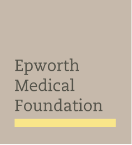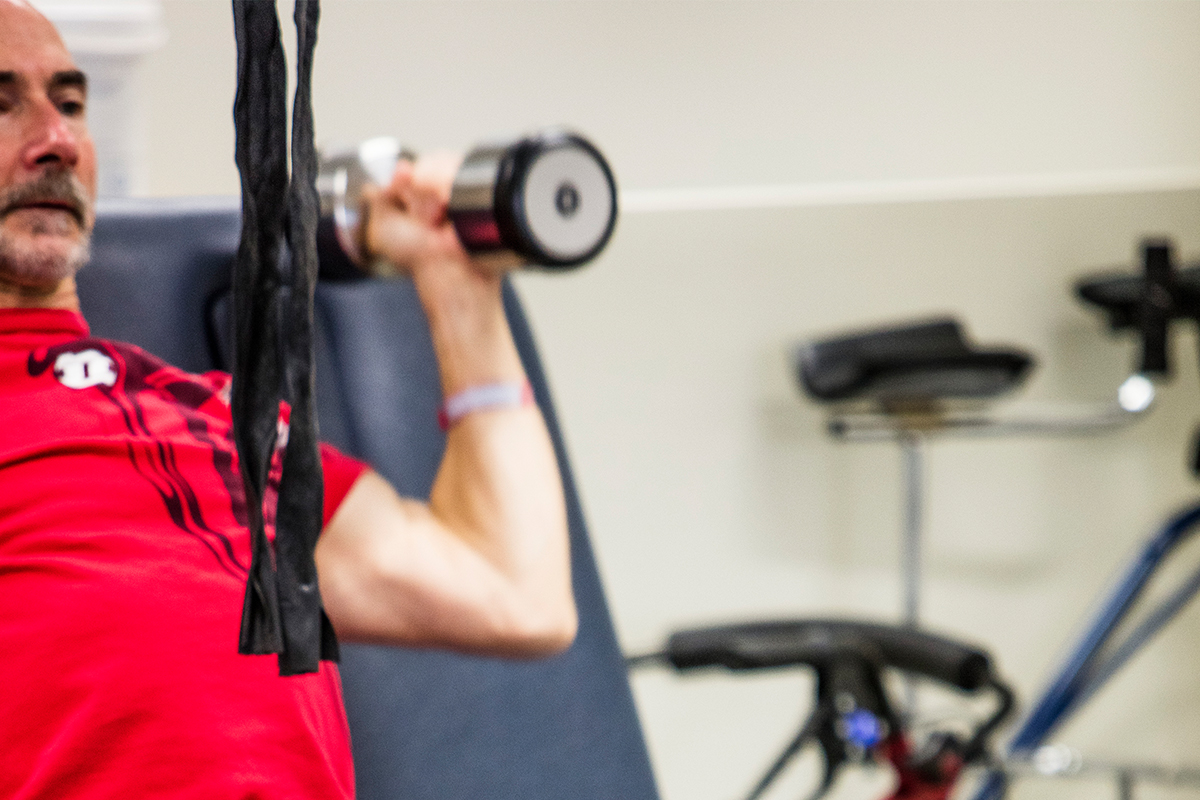Epworth provides specialist rehabilitation care for people who have sustained traumatic orthopaedic injury, amputation, minor brain injuries, complex wounds and burns following an accident, including a motor vehicle or work-related accident.
The impact of multi-trauma orthopaedic injuries is often more than just physical. We recognise the importance of treating the psychological and social impact at the same time.
Our multidisciplinary treating team has some of Australia’s most renowned clinicians caring for our patients. Our dedicated team includes specialist rehabilitation physicians and highly qualified physiotherapists, exercise physiologists, occupational therapists, psychologists, social workers and dietitians.
Our rehabilitation nurses are also an integral part of patient care - helping to improve mobility, regaining day-to-day skills and preparing for the transition home.
The team works together to assess and develop a tailored program to best meet the needs of every individual and their family to support, guide and encourage them towards independence.
Most multi-trauma orthopaedic patients will begin their journey with us as an inpatient and transition to outpatient or home-based care when ready.
What does rehabilitation involve?
Your program will address:
- physical needs such as improving range of movement, muscle strength, mobility and range of fitness
- help you work on activities of daily living including personal care, domestic and community interaction to preparing you to return to home safely
- nutrition to promote recovery
- your emotional wellbeing
- commonly experienced challenges such as memory loss, concentration and problem solving
- links with relevant organisations such as TAC, WorkSafe and community supports.
Physiotherapy
Patients admitted to Epworth attend twice daily exercise therapy, which is a combination of physiotherapy (including aquatic, if suitable) and exercise groups.
Our team of skilled physiotherapists and exercise physiologists work with patients to assess their needs and develop an exercise program to improve range of movement, muscle strength and mobility. Importantly, they also work with patients on their overall fitness, providing education, encouragement and support.
Some patients participate in aquatic physiotherapy where they exercise in warm water which promotes muscle relaxation and helps to relieve pain. This type of exercise is particularly suited to people with restricted weight bearing. The buoyancy helps patients to work on strengthening their muscles, coordination and balance.
Occupational Therapy
Occupational therapists work closely with patients to help improve and maintain their level of independence in daily living activities, including personal care, domestic and community interaction. A home visit may be needed to assess if any specialised equipment, aids or home modifications are required to ensure a home-safe environment.
Our occupational therapists also provide hand therapy which helps improve hand and arm function. For some of our patients, this includes assistance in scar and swelling management (including prescription of compression garments) and custom splinting to protect joints or enhance function.
Providing advice about returning to work and coordinating driving retraining is also a key role of our occupational therapists.
Psychology
Patients who have been involved in a work or motor vehicle accident often benefit from working with our psychologists. Many people can feel sad, anxious, guilty and angry after experiencing a traumatic event.
Commonly experienced challenges such as memory loss, concentration difficulties and problem solving can also be addressed. Talking to a psychologist provides an opportunity to discuss the emotional impact of the accident and can help patients and their families develop coping and adjustment strategies.
Social work
Social workers provide emotional support to patients and families during the process of rehabilitation. They liaise with relevant organisations including TAC, WorkSafe and Centrelink, and assist patients with financial and legal issues that may arise following an injury. Social workers work closely with other members of the treating team to help with discharge planning and accessing resources.
Diet and nutrition
Good nutrition is essential to promote recovery following a multi trauma injury. Our dietitians work with patients to develop tailored nutrition plans taking into consideration appetite, dietary intake, body weight and the body’s increased nutritional requirements for healing. Our dietitians can also provide specific dietary and lifestyle advice for optimal health and wellbeing.
Other services and programs to support rehabilitation
- Bike education
- Driving rehabilitation program
- High level mobility - running group
- Hydrotherapy
- Return to work program
Multi-trauma orthopaedic care at Epworth
Patient comfort at Epworth is as important to us as their recovery. The accommodation is exceptional with spacious private rooms. The hotel-type suites have modern décor and natural light. Each room has a dedicated ensuite, heating and air-conditioning, mini fridge, telephone, wi-fi connection and flat screen TV.
Funding support
If a patient was involved in a road accident, they may be eligible to have their treatment covered by the Victorian Traffic Accident Commission.
For further information, please see the TAC website.
Program type:
- Inpatient
- Outpatient
Available at:
Referring to rehabilitation services
Online referral form and contact details for Epworth rehabilitation services.


